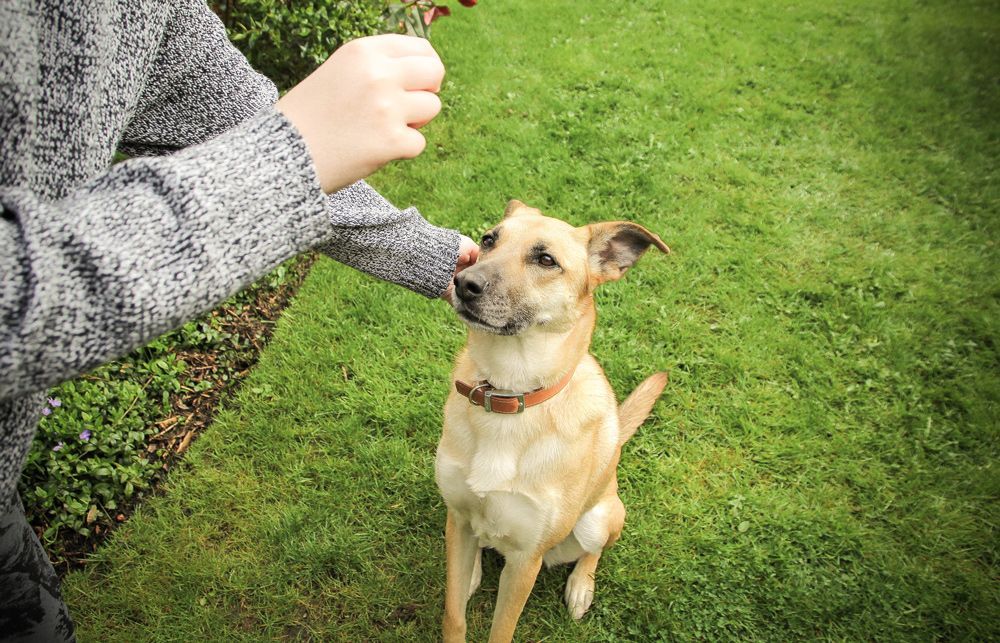A Comprehensive Guide to Welcoming a Shelter Dog into Your Home
Things to keep in mind with your new rescue dog

When someone adopts a dog from a shelter or rescue, it's a wonderful and compassionate act, even though the dog often comes with an unknown history. The adopter may not be aware of the reasons the dog ended up in a shelter or rescue, but they form a strong bond with the new furry family member. They receive guidance from the rescue or shelter on how to introduce the dog into their household, which may include other pets and family members. The household's pace can range from calm and quiet to busy and hectic, and the adopter's experience with dogs may vary from none to having had dogs in the past.
Upon arriving home, some dogs quickly settle down, exploring their new environment while responding to the adopter. However, on the other end of the spectrum, some dogs exhibit high energy levels and may even mark or eliminate indoors and be destructive. When attempts are made to encourage them to stop or go outside, they may perceive it as a game or completely ignore them, leading to frustration and, sometimes, anger from the adopter.
When adopting a dog or puppy, it's crucial to follow the recommendations provided by the adopting entity, as these recommendations are typically well thought out and proven effective in most cases. Failing to follow these guidelines can lead to problems. Why? Because the dog brought home may have ingrained behaviors learned throughout its life, some of which may have contributed to it being relinquished in the first place.
Can unwanted behaviors be changed? Absolutely!
How can we change these unwanted behaviors? The answer is to guide the dog on how to live harmoniously with you.
I once had the opportunity to meet with a prospective adopter interested in a dog I had trained. I shared my insights and recommendations with her, and she also understood the guidelines set by the rescue organization. She adopted a big, young, and highly energetic male dog, and everything seemed to be going well as they began to bond on the first day.
However, a critical incident occurred when a delivery person rang her doorbell. The dog, who was off-leash at the time, rushed to the front door and started barking. In her attempt to control him, she grabbed his collar while he was in an agitated state, leading to him redirecting his agitation and biting her multiple times. This incident happened just a few days after she brought him home.
The mistake made here was not following the rescue's advice to keep the dog on a leash and grabbing the dog by the collar during a highly aroused state when he barely knew her. Unfortunately, what initially seemed like a great situation spiraled out of control because she failed to adhere to the rescue's recommendations.
It's essential to understand that not every case turns out this way, and I'm not discouraging people from adopting dogs. My point is that rescue organizations work diligently to find forever homes for dogs, and they have established rules and recommendations to help both you and your new canine companion thrive together.
Here are my recommendations for successfully integrating a new dog into your home:
The first rule, which I believe is non-negotiable, is to keep the dog on a leash for at least the first two weeks (unless they are securely in a kennel). The leash provides a means to guide your new dog throughout their day. It allows you to redirect them if they engage with undesirable items and helps you guide them to the appropriate spot for relieving themselves while ensuring they return to you promptly.
The second rule is to establish a schedule that includes feeding times, playtime, outdoor time for relieving themselves, bedtime, and wake-up time. While this schedule doesn't need to be rigid, it aids in providing structure for your dog.
The third rule is to understand that it takes a couple of weeks for a dog to adapt to its new environment. During this initial period, you can guide them and introduce them to the rules and routines of your household. I often refer to this as the "honeymoon period" when dogs generally exhibit their best behavior. However, without structure and guidance, they may revert to behaviors learned before coming to you.
Dogs are indeed intelligent creatures, but they rely on us to teach them what is acceptable in our homes. With structure and leadership, rather than strict discipline, we can provide a secure and nurturing environment for our furry companions.
business hours
Monday - Friday: 9 AM – 5 PM






